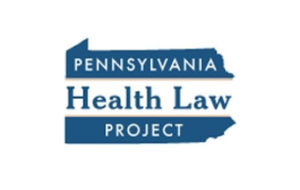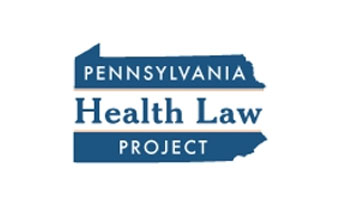Pennsylvania Health Law Project Newsletter
The Pennsylvania Health Law Project has published its June 2022 newsletter.
Included in this month’s edition are articles about:
 Changes in HealthChoices managed care plans that take effect on September 1.
Changes in HealthChoices managed care plans that take effect on September 1.- The July 1 transition to Tempus as the financial management services vendor for Community HealthChoices, which means Tempus will take over paying direct care workers hired by Community HealthChoices participants as part of that program’s self-directed care model.
- A reduction of the deadline for requesting a fair hearing in response to Medicaid eligibility rejection or termination from the program from 90 days, which it has been since the start of the COVID-19 emergency, back to the 30 days it was before that time. This change is retroactive to May.
- A lifting of the pandemic-driven suspension of the need for prior authorization for shift nursing services for Medicaid beneficiaries under the age of 21, which will take effect on November 1.
Read about these subjects and more in the June 2022 edition of Health Law News, the Pennsylvania Health Law Project’s newsletter.
 Included in this month’s issue are articles about:
Included in this month’s issue are articles about: Proposed State FY 2023 Budget
Proposed State FY 2023 Budget General Assembly
General Assembly Department of Health
Department of Health Stakeholder Events
Stakeholder Events Department of Human Services
Department of Human Services Among the subjects addressed in the group’s report 2021 State of Children’s Health Care in Pennsylvania: Health Insurance During the COVID-19 Pandemic are the increase in the number of insured children in the state as a result of the current public health emergency; the impact of the pandemic on children receiving their childhood immunizations; the major role Medicaid and the Children’s Health Insurance Program (CHIP) play in insuring children in the state; the implications of the end of the declared public health emergency; and more.
Among the subjects addressed in the group’s report 2021 State of Children’s Health Care in Pennsylvania: Health Insurance During the COVID-19 Pandemic are the increase in the number of insured children in the state as a result of the current public health emergency; the impact of the pandemic on children receiving their childhood immunizations; the major role Medicaid and the Children’s Health Insurance Program (CHIP) play in insuring children in the state; the implications of the end of the declared public health emergency; and more. Three times since 2015 the state has issued requests for proposals from managed care companies and all three times at least one of the losing parties has responded to its defeat by filing a lawsuit.
Three times since 2015 the state has issued requests for proposals from managed care companies and all three times at least one of the losing parties has responded to its defeat by filing a lawsuit. Included in this month’s edition are articles about:
Included in this month’s edition are articles about: As a result, Pennsylvania has added nearly 400,000 people to its Medicaid rolls in the past year. Today, 3.2 million Pennsylvanians are enrolled in the state’s program, although among them are approximately 250,000 who would have been dropped from the program except for a federal requirement that the state not drop people from the program in exchange for a major increase in federal aid for the state’s program.
As a result, Pennsylvania has added nearly 400,000 people to its Medicaid rolls in the past year. Today, 3.2 million Pennsylvanians are enrolled in the state’s program, although among them are approximately 250,000 who would have been dropped from the program except for a federal requirement that the state not drop people from the program in exchange for a major increase in federal aid for the state’s program.